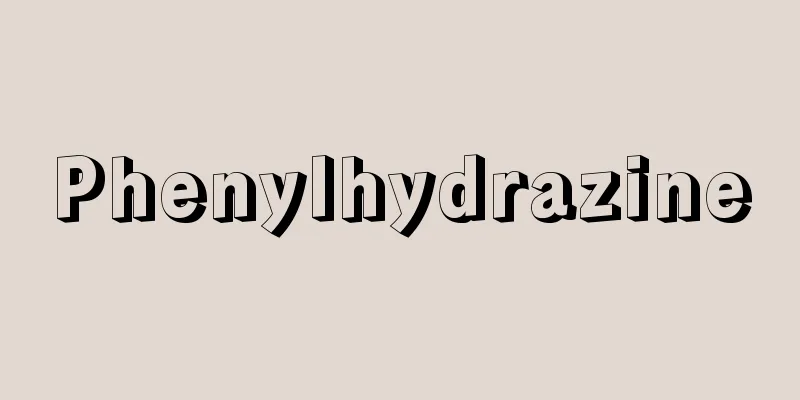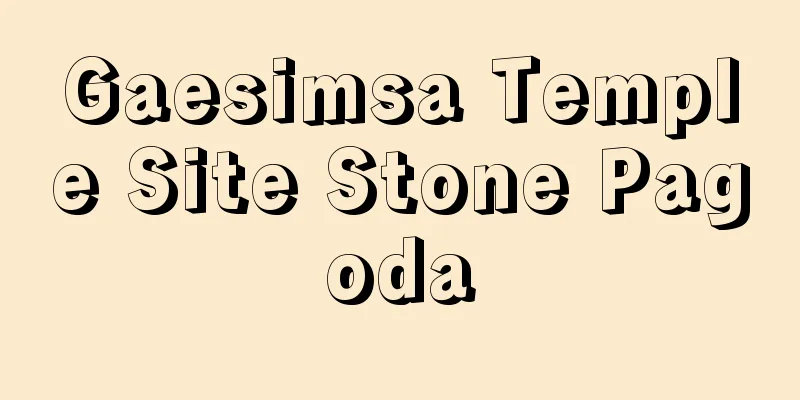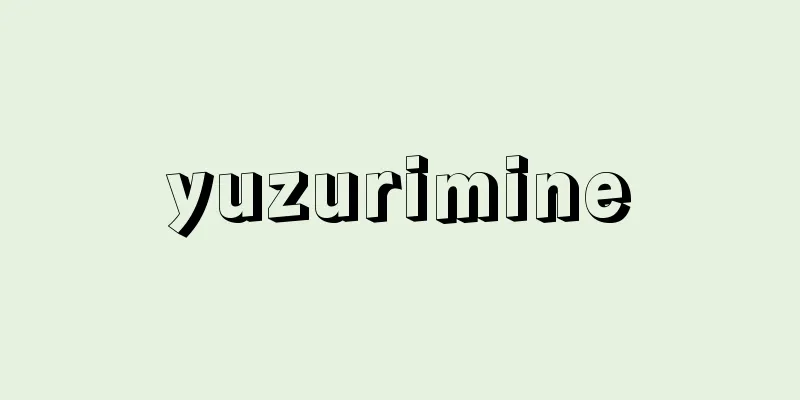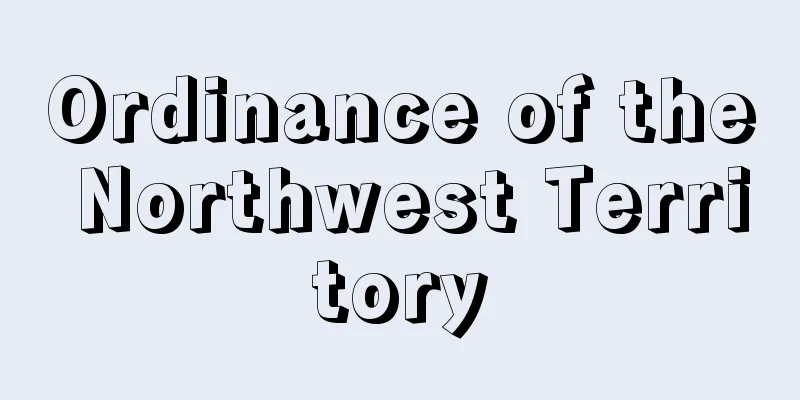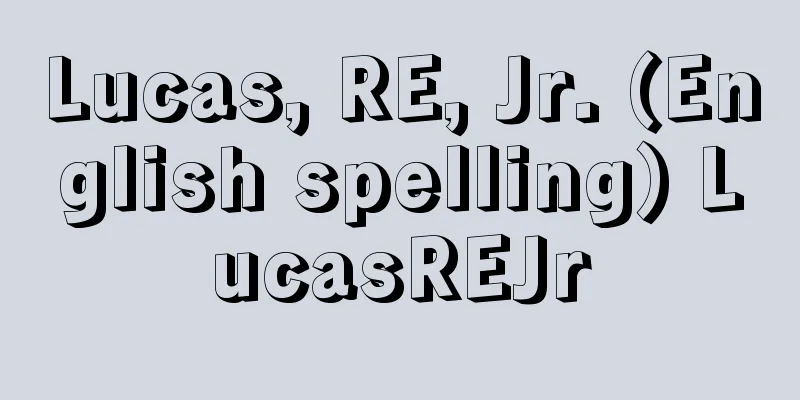Private property system - Privateigentum System (German)

|
Private ownership of property is institutionally and legally confirmed. In capitalist society, this develops comprehensively and its contradictions intensify. Property systems take various forms depending on the way humans control the external natural world. In pre-capitalist societies, the main asset was land, and the property system was based on the way land was owned. [Nozomi Kawamura] Private and communal ownership of landIn primitive communities, blood-related groups (tribes and clans) existed as a prerequisite for interacting with nature, and the common ownership of land was rather the result of collective labor. The formation of a family from within this meant that, of the land that had previously been entirely owned communally, the house plots and gardens were privately owned by the family and inherited by male descendants. All remaining land, including cultivated land, continued to be owned communally, but with this change, territorial groups known as agricultural communities, founded on common land ownership, came to become the basic unit of confederation, replacing blood-related groups such as tribes and clans. Later, private ownership of land by families extended to cultivated land, but communal ownership of land in some form continued to exist before the establishment of capitalist society. For example, in Greek and Roman city-states, private ownership of cultivated land and communal ownership coexisted, and the harvest from the common land was used to cover the public works of the community. In the Germanic village communities that continued to exist under feudal land ownership, namely the Markgenossenschaft (German), cultivated land was privately owned by families, but pasture land, forests, and hay fields were owned by the community. Slavery and serfdom were ancillary consequences of the private ownership of land by slave owners, serf masters, and feudal lords, and slaves and serfs were considered to be accessories to the land, along with livestock. [Nozomi Kawamura] Capitalist OwnershipCapitalist production is made possible by the fact that workers who were previously tied to the land become wage laborers who are free in a double sense (free from the old bondage and free from ownership of the means of production), but this also means the final dissolution of communal land ownership and the communal relations that are based on it. Thus, the capitalist mode of production creates the purest form of private property. In capitalist society, all property is owned individually and privately. At the same time, capitalist private property reverses the relationship between humans and property in property. Originally, property was an act of will toward objective nature, a relationship with the object as ours. However, in capitalist property, as seen in the ownership of capital, the human owner is merely the personification of the thing that is the object of property. [Nozomi Kawamura] "Forms Antecedent to Capitalist Production" by K. Marx, translated by Masaki Teshima (Otsuki Shoten, National Library) " "The Origin of the Family, Private Property and the State" by F. Engels, translated by Yasuo Murai and Yoichi Murata (Otsuki Shoten, National Library)" [Reference items] | |Source: Shogakukan Encyclopedia Nipponica About Encyclopedia Nipponica Information | Legend |
|
財産の私的所有が制度的・法律的に確認されていること。資本主義社会ではそれが全面的に発展していき、その矛盾も激化する。財産制度は、人間の外界的自然に対する支配の仕方によって、さまざまな形をとる。資本主義社会以前における社会にあっては、主要な財産は土地であり、財産制度は土地所有のあり方によっていた。 [河村 望] 土地の私的所有と共同体所有原始共同体にあっては、自然に働きかける前提としての血縁集団(部族・氏族)があり、土地の共同所有は、むしろ集団的労働の結果であった。このなかから家族が形成されるということは、それまですべて共同所有であった土地のうち、宅地と庭地が家族によって私的に所有され、男系の男子たちによって相続されることを意味した。耕地を含めて残りの土地のすべては依然として共同所有であったが、このような変化に伴って、部族・氏族という血縁集団にかわって、共同の土地所有のうえに成り立つ農業共同体という地縁集団が、連合の基本単位となるに至ったのである。 その後、家族による土地の私的所有は耕地にまで及ぶが、土地の共同体的所有は、なんらかの形で資本主義社会の成立以前には存続する。たとえば、ギリシア・ローマの都市国家では、耕地の私的所有と共同体所有が並存し、共有地からの収穫は共同体の公共の事業をまかなうのに用いられた。また、封建的土地所有のもとでも生き続けたゲルマンの村落共同体、すなわちマルク共同体Markgenossenschaft(ドイツ語)にあっては、耕地は家族によって私的に占有されていたが、放牧地、森林、採草地などは共同体によって占有されていた。なお、奴隷制や農奴制は、奴隷主や農奴主・領主の私的土地所有の付属的結果として生ずるもので、奴隷や農奴は、家畜と並んで土地の付属物とみなされていたのである。 [河村 望] 資本主義的所有資本主義的生産は、それまで土地に縛り付けられていた労働者が二重の意味で自由な(これまでの古い束縛から自由であると同時に、生産手段の所有から自由な)賃労働者になることによって可能となるが、このことはまた、共同体的土地所有と、それを基礎に成り立つ共同体的諸関係の終極的解体をも意味していた。こうして、資本主義的生産様式は、もっとも純粋な私有財産の形態をつくりだすのである。資本主義社会のもとでは、すべての財貨は個人的、私的に所有される。と同時に、資本主義的私有は、所有における人間と財貨の関係を逆転させる。本源的には、所有は対象的自然に対する意思関係行為であり、われわれのものとして対象と関係をもつことであった。ところが、資本主義的所有は、資本の所有にみられるように、所有者である人間は、単に所有の対象である物の人格化にすぎないのである。 [河村 望] 『K・マルクス著、手島正毅訳『資本主義的生産に先行する諸形態』(大月書店・国民文庫)』▽『F・エンゲルス著、村井康男・村田陽一訳『家族、私有財産および国家の起源』(大月書店・国民文庫)』 [参照項目] | |出典 小学館 日本大百科全書(ニッポニカ)日本大百科全書(ニッポニカ)について 情報 | 凡例 |
>>: Felony and misdemeanor - felony and misdemeanor
Recommend
Naruse River
A river that flows through the center of Miyagi P...
Program music (English)
A musical piece is an instrumental or ensemble pi...
Foreign slave - Gaikyonnuhi
… Public slaves paid a poll tax of one roll of co...
Beau Brummel
...Dressing tables, which combine a mirror and a ...
High Church - Kokyokai (English spelling)
The position emphasizes the continuity of the Angl...
Inguinal hernia
This refers to a condition in which an organ in t...
Vinyl cord for instruments - Kiguyoubi Vinyl Cord
...An insulated, flexible electric wire used to c...
Rodzyanko, Mikhail Vladimirovich
Born: February 21, 1859, Ukraine Died January 24, ...
Felis libyca; Caffre cat; African wildcat
Carnivora, Felidae. Body length 70cm, tail length ...
Ofunato Bay - Ofunatowan
An inlet on the Sanriku coast in the southeastern...
Kanshido - Kanshido
...A Chinese thinker in the late Ming Dynasty. Hi...
Bait fishing mine
...In addition, there are also limitations due to...
Monastery - shuudouin (English spelling) monastery
In Christianity, those who take special vows and ...
Rodrigues [island] - Rodrigues
An island in the western Indian Ocean. It is locat...
Opal - opal (English spelling)
It is a type of hydrous silicate mineral, and its...
